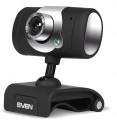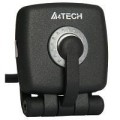Megapixels
The number of megapixels in the matrix that the camera is equipped with, in other words, the native resolution of the matrix. First of all, the maximum photo size directly depends on this indicator: for example, a 1600x1200 frame requires at least 1600 * 1200 = 1,920,000 pixels ≈ 2 MP. With video, the situation is somewhat different, where the actual resolution of the matrix can be noticeably higher than required for the frame.
There is an opinion that the more megapixels, the better the image is obtained. Formally, this is not the case: the resolution of the sensor only affects the detail, and in itself numerous megapixels can even worsen the picture — especially if the matrix is small. However, in fact, high-resolution sensors are often installed in fairly advanced cameras, in which high image quality is achieved through a number of characteristics.
SXGA filming
A rather specific standard, assuming a resolution of 1280x1024, which gives a 5:4 aspect ratio of the frame.
SXGA is a good option for cases where you need a frame with a standard (not widescreen) aspect ratio, and the corresponding options in HD resolutions are no longer enough.
Focus
Focus method — focus — provided in the design of the camera.
The simplest and most common option is manual focus; it requires some setup steps, but does not cause any particular difficulties, besides, it allows you to set the sharpness as you wish, without relying on automation.
Autofocus, in turn, saves the user from having to fiddle with the settings, however, it is also more expensive. In addition, autofocus systems may not work as you would like, and they still sometimes have to be adjusted manually (however, such a need is extremely rare).
Field of view
The viewing angle determines, first of all, how wide the field of view of the camera is, what area of the scene being shot falls into the frame. Accordingly,
a wide viewing angle allows you to capture more space and the lower the likelihood that something of what is happening will be behind the scenes. On the other hand, it should be taken into account that a strong increase in viewing angles leads to distortions of the “picture”, especially at the edges, as well as to a decrease in the size of visible objects and a decrease in detail.
File format
File formats in which the camera can save video footage.
This parameter is for reference only: modern computers are equipped with extensive sets of codecs that allow you to play almost all common formats, and in extreme cases, the missing codec can be installed separately. TVs in this regard have more limited capabilities, however, in webcams designed for them (see "Purpose"), this moment is initially taken into account.
Indicators
Types of indicators (usually light) provided in the design of the camera. In modern models, there are (separately or together) two types of indicators:
— Nutrition. An indicator that indicates that everything is in order with the power supply. On some models, this indicator only works when the camera is turned on and ready to use, on others it can also work in standby mode — for example, it will glow in a different light than when the camera is on.
— Activities. An indicator that indicates that the camera is shooting video — and, accordingly, it is being recorded or broadcast on the Internet. Such an indicator makes it easier to keep track of the shooting mode and avoids unpleasant situations, such as accidentally broadcasting to the Internet from a camera that you forgot to turn off.

